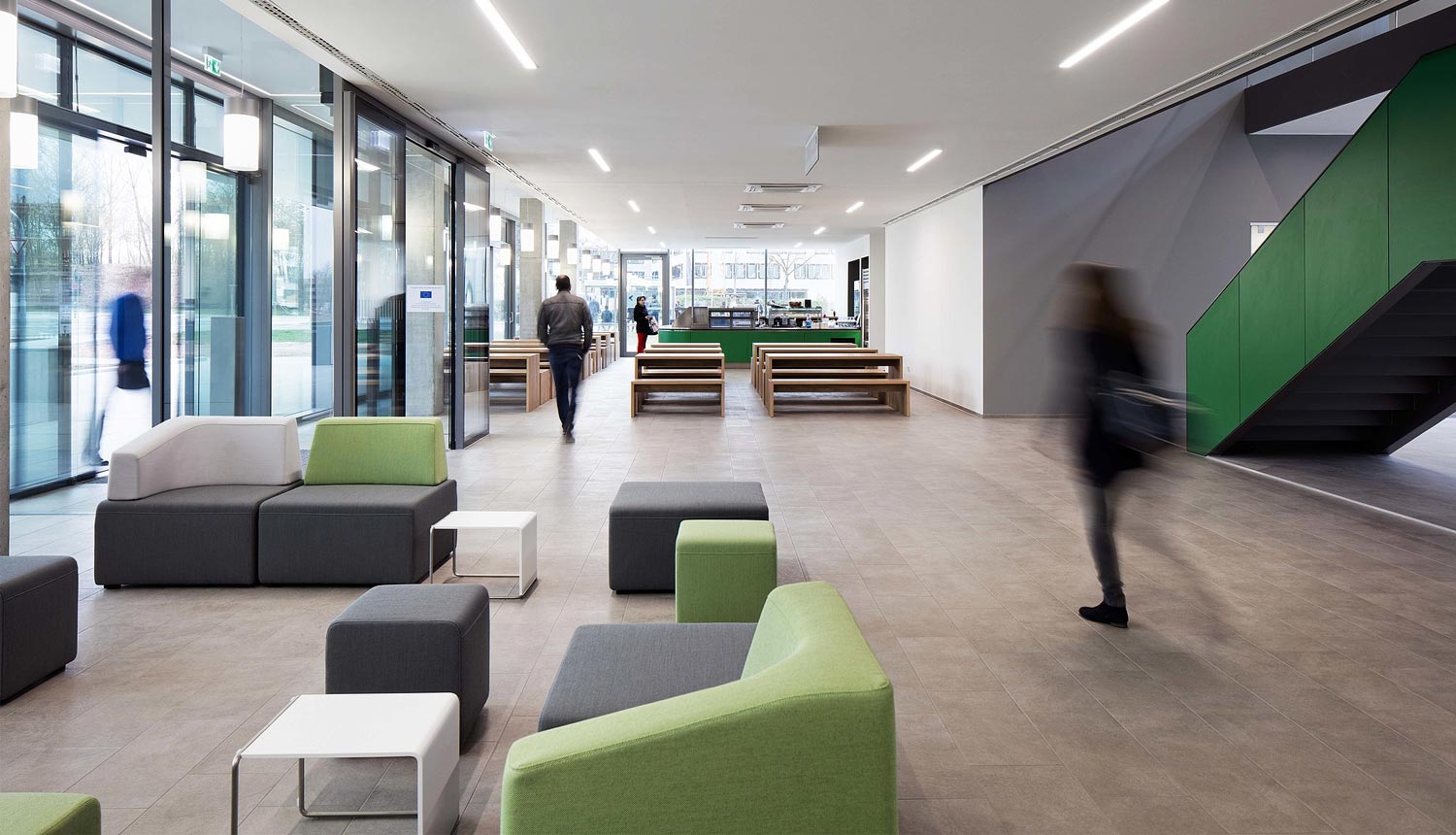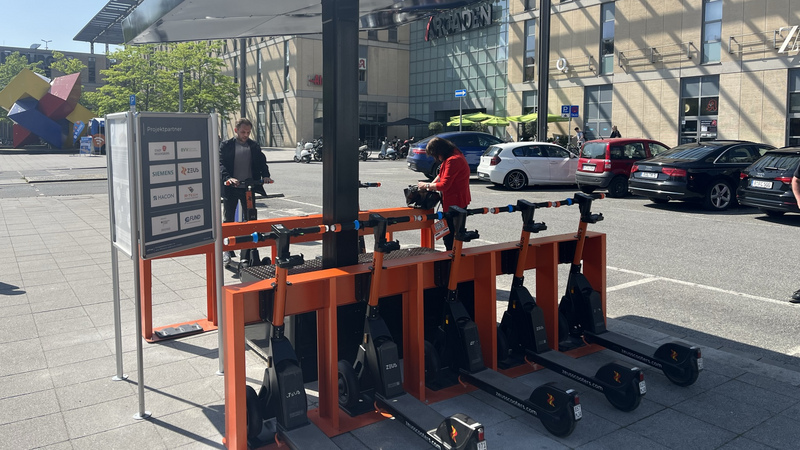At the end of 2020, a citizen survey on the potential use of micromobility services - especially e-scooters - was carried out as part of a research project. This preliminary study revealed some interesting findings. Acceptance and attitudes towards scooters were very differentiated. One of the main points of criticism was uncontrolled parking. In the survey, many respondents stated that they would use e-scooters more often if they were sustainable and more readily available.
The research project "Zielbringende Integration Steuerung und Management von Mikromobilitätdienstleistungen (ZISteM)", which has been running since October 2021, has taken up the suggestions and wishes of citizens and developed appropriate measures. These are now being tested in a pilot phase that has been running since fall 2022. This phase is being accompanied by selected test users. In addition to various aspects of mobility behavior, a web app will also be made available to the group for testing, which will be used to map chains of routes using public transport and Zeus scooters.
Scooters must be available at the transfer points for these chains of routes to work. In coordination with the city of Regensburg, two new solar charging stations will therefore be installed at the Arcaden and Burgweinting train stations. These are a further development of the model presented at TechBase in fall 2022 as part of the "Nacht.Schafft.Wissen" event. The new Zeus scooters - recognizable by their orange handlebars - can be charged inductively there. But the 2nd generation of scooters can do even more: they have air-sprung tires (practical for cobblestones), indicators, a larger, replaceable battery and a smartphone holder for navigation.
The elegance of the new solar charging stations also impresses Tanja Flemmig, Head of the Urban Planning Office: "The design is simple and elegant at the same time. I think that these elements blend in well with the urban space. Even though the city of Regensburg is not uncritical of e-scooter sharing and advocates certain regulations, we still see the potential for a shift in car journeys - especially in combination with public transport."
One component of the pilot project is to survey public acceptance, with a city-wide citizen survey to be conducted before the summer break
About the provider ZEUS Scooters GmbH
The scooter sharing provider ZEUS is now the company with the longest experience in Regensburg. "We have been active in Regensburg for almost three years and are very satisfied," says General Manager Jens Altmann, describing the company's involvement in the cathedral city. "Even in winter, we had 7,000 trips per month. That was almost twice as many as in the previous winter. What is particularly pleasing is that the number of occasional users is continuously decreasing and the number of frequent riders is constantly increasing. Scooters have long since ceased to be just a fun vehicle and are now valued and used as a means of everyday transportation."
The ZOLAR stations in Regensburg are a premiere that has been a long time in the making, as Jens Altmann explains. "We are proud of our new product and are delighted to present it to the public here
to present it to the public here in Regensburg. This is how we are creating sustainable mobility in this great city."
The background
In addition to the provider Zeus, the Regensburg city administration, Siemens, RVV, HACON Ingenieurgesellschaft mbH and R-Tech GmbH with the Cluster Mobility & Logistics are involved in the "ZISteM" project.
Further information can be found at www.zistem.de and in the image film.
The image film was produced by the Cluster Mobility & Logistics (R-Tech GmbH) as part of the European mobility project RECIPROCITY. The aim of RECIPROCITY is to identify innovative mobility concepts/projects for rural, inner-city and peri-urban areas, such as ZISTeM, to share experiences and knowledge about them and, ideally, to replicate these concepts/projects elsewhere.
The "ZISteM" project is funded by the Federal Ministry for Digital and Transport. As part of the mFUND innovation initiative, the BMDV has been funding data-based research and development projects for the digital and connected mobility of the future since 2016. The project funding is supplemented by active professional networking between stakeholders from politics, business, administration and research and by the provision of open data in the Mobilithek. Further information can be found at www.mfund.de.

![[Translate to Englisch:] Innovationszentrum TechBase](/fileadmin/user_upload/Logos/logo_techbase.png)
